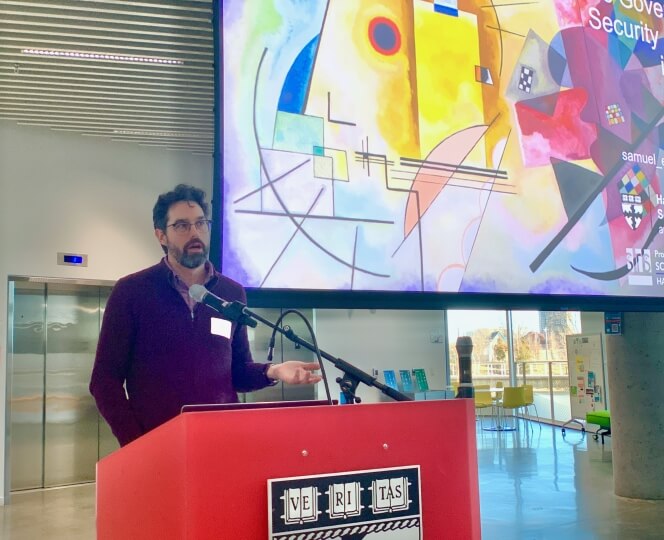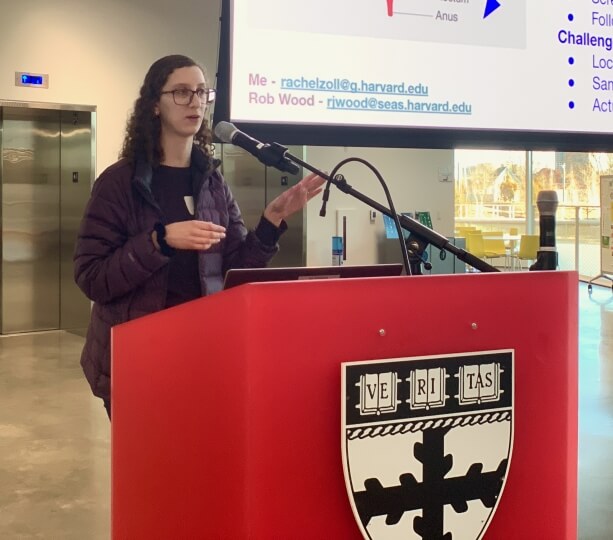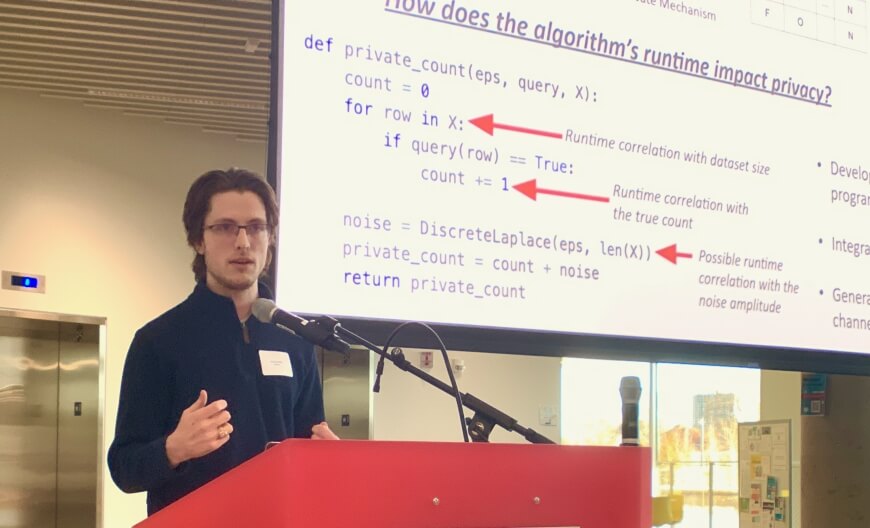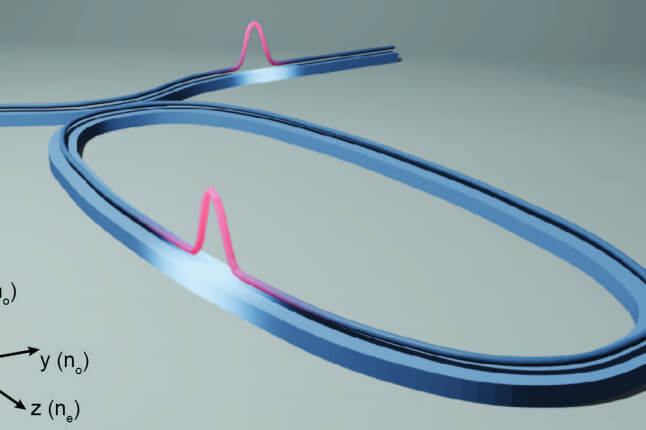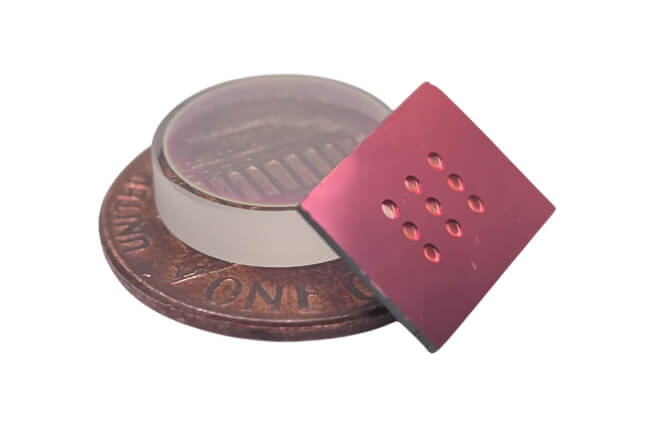News
Senior research fellow Sam Evans presents at the SEAS Research Showcase. (Matt Goisman/SEAS)
There’s a research lab – more accurately, several research labs – for every concentration at the Harvard John A. Paulson School of Engineering and Applied Sciences (SEAS). If you like building robots, check out Conor Walsh’s Biodesign Lab, or Rob Wood’s Microrobotics Laboratory. If you want to work on cancer therapies, David Mooney’s Laboratory for Cell and Tissue Engineering or Samir Mitragotri’s Laboratory for Drug Delivery might be more to your liking. An environmental science student could study the atmospheric effects of climate change in the Frank Keutsch Research Group, whereas a computer science student could explore ethical issues surrounding data and statistics in Salil Vadhan’s Privacy Tools Project.
These were just a few of the laboratories and research opportunities presented to undergraduates at the recent SEAS Research Showcase at the Science and Engineering Complex. The event gave undergraduates a chance to hear from 12 graduate and postdoctoral students, each representing a different research topic, then chat one-on-one with presenters.
“The lab experience has a lot of applications,” said first-year student Quinlyn Long. “A lot of the classes that I’m taking now can be applied to real-life experiences, and this gives me a taste for what a possible career might be and helps guide where I want to go next.
The desire for hands-on applications of their coursework was shared by many of the undergraduates in attendance. Several also hoped their laboratory experiences would act as guides as they navigate the next few years of their education at Harvard.
Ph.D. candidate Rachel Zoll presents at the SEAS Research Showcase. (Matt Goisman/SEAS)
“It’ll give me an opportunity to apply the concepts that I’m learning in class into real-world scenarios, and also figure out my career and what I really want to do when I leave school,” said first-year Taylor Folk.
Ph.D. student Zachary Ratliff echoed the sentiments of some of the undergraduates who might become his colleagues in the coming years. Ratliff, a member of the Harvard Privacy Tools Project, presented on mitigating attacks on data privacy, and said undergraduate research was invaluable in getting to where he is now.
“When I was an undergrad, I knew in the back of my mind that I wanted to pursue grad school,” Ratliff said. “For me, doing undergraduate research was both a valuable experience at the time and also helped me later apply to grad school. Undergraduate research and lab work also augments and helps solidify the stuff you learn in the classroom through real-world experience and experimentation.”
Researchers presented on a broad range of topics. Tica Lin, a Ph.D. student in Prof. Hanspeter Pfister’s Visual Computing Group, discussed using augmented and virtual reality to produce immersive sports analytics data, while Rachel Zoll showed off the minimally invasive stomach sensors under development in the Harvard Microrobotics Lab. Nikko Jeffreys and Suyong Shaha presented new cancer therapeutics research in, respectively, the Mooney and Mitragotri Labs.
Missed the showcase? Here’s the full list of everyone who presented at the SEAS Research Showcase.
- “Using computer graphics to study human and artificial intelligence” - Spandan Madan, Harvard/MIT Center for Brains, Minds and Machines
- “Surface ligand immobilization by interfacial polymeric coatings enhances the emergence of human T-cell progenitors from hematopoietic stem cells ex vivo” - Nikko Jeffreys, Mooney Lab
- “SportsXR - Immersive analytics in sports” - Tica Lin, Visual Computing Group
- “Mitigating timing attacks on differential privacy” - Zachary Ratliff, Harvard Privacy Tools Project
- “Inflatable robots for upper limb assistance” - Harrison Young, Harvard Biodesign Lab
- “Soft robotic manipulation” - David Bombara, Harvard Microrobotics Lab
- “Cellular backpacks for killer T-cell oncotherapy” - Suyog Shaha, Mitragotri Lab
- “From theory to practice: applied math for inverse problems and machine learning” - Jorio Cocola, Yue Lu Research Group
- “The governance of security concerns in science” - Sam Evans, Program on Science, Technology and Society
- “Security via algorithmic economics” - Matheus Ferreira, EconCS Group
- “Swallowing the surgeon - sensors in your stomach” - Rachel Zoll, Harvard Microrobotics Lab
- “Atmospheric chemistry - from the lab to the field” - David Verbart, Keutsch Research Group
Ph.D. candidate Zachary Ratliff presents at the SEAS Research Showcase. (Matt Goisman/SEAS)
“Hands-on experience is very important with anything that you’re doing,” said first-year student Ana Aguilar, who was also there representing the Harvard Society of Hispanic Professional Engineers. “I think cancer research can seem very far from many students until they’re in a lab learning about it. It brings the material that you’re learning a lot closer and creates a more personal level of engagement.”
Many of the SEAS research labs are multidisciplinary and cross over to other Harvard schools such as the Harvard John F. Kennedy School of Government or Department of Chemistry and Chemical Biology in the Faculty of Arts and Sciences. Students shouldn’t limit themselves to research that feels the most directly related to their coursework: A bioengineering lab benefits from computer science concentrators that can process research data, just as a robotics lab benefits from bioengineering students with a solid understanding of how the human body works.
The key is for students to determine what they’re passionate about, then find a lab that lets them pursue it.
Topics: Academics, Allston Campus, Bioengineering, Climate, Computer Science, Environmental Science & Engineering, Health / Medicine, Materials Science & Mechanical Engineering, Robotics
Cutting-edge science delivered direct to your inbox.
Join the Harvard SEAS mailing list.
Press Contact
Matt Goisman | mgoisman@g.harvard.edu
